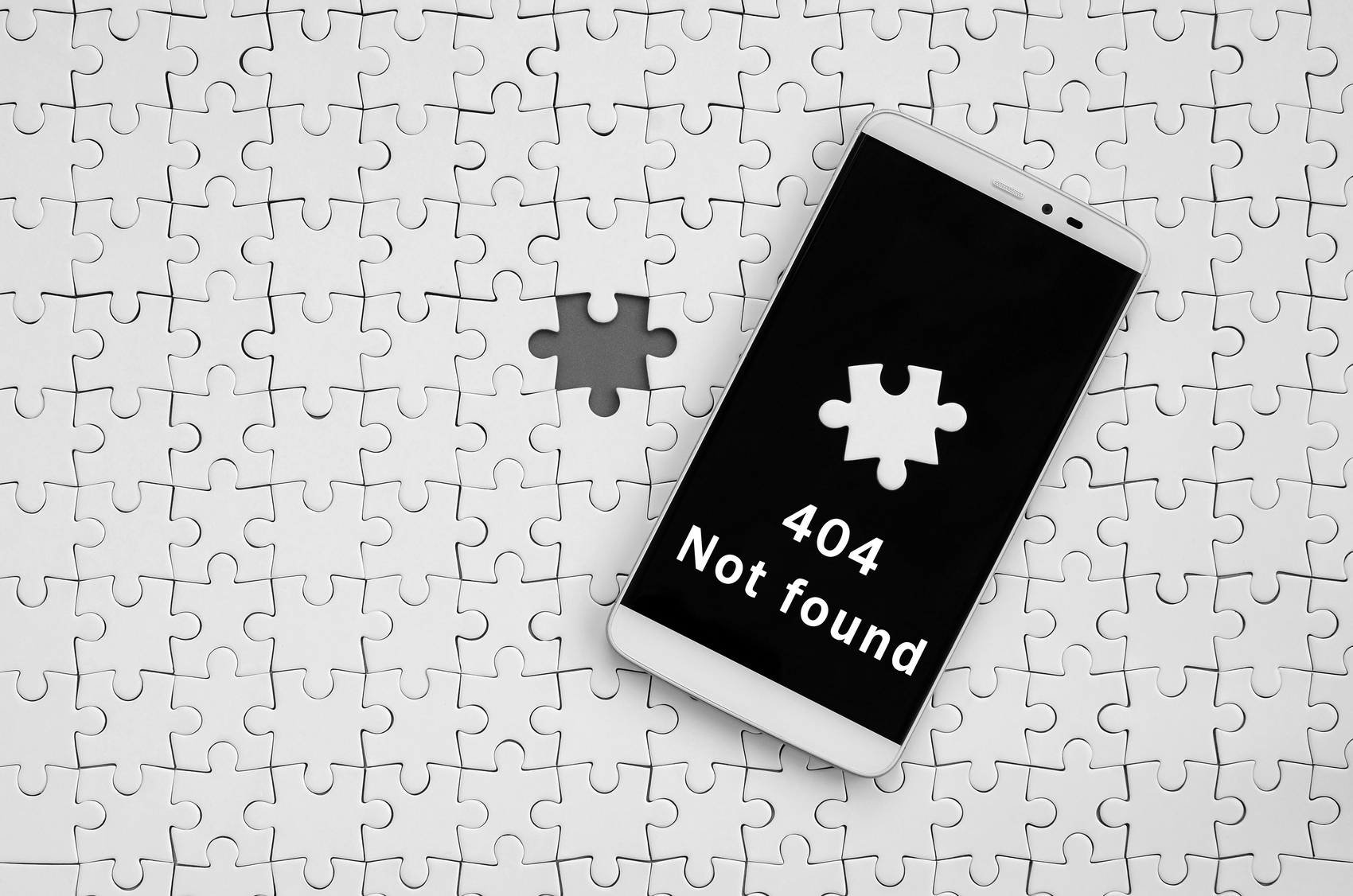How 404 Errors Can Dampen Your SEO Efforts?
A 404 error is a way of telling users that the URL they are looking for is ‘Not Found’. It is the page a server displays when it cannot locate the URL requested by users. These error pages are common internet annoyances, which are unavoidable.
Are 404 errors troublesome for SEO?
Usually, any experienced agency should be able to find and fix the 404 errors as a part of internal website optimization when they do a full website scan during an SEO audit. The impact of error pages on your SEO efforts depends on why they occur or in which situation they turn up. Some critical situations are :
Broken internal links
404 error page pops up when a URL was linked incorrectly or does not exist now. Broken links offer poor user experience, hinders search bots crawling abilities, and compromises your website’s integrity.
The solution is to periodically, scrutinize your website for broken internal links using specific software.
Soft 404 errors
It occurs when a non-existing URL returns 200 status codes. When you order pizza and they serve you an empty plate rather than telling you that they are sold out. Soft 404 errors are an issue as search engines don’t stop crawling and indexing the non-existing page. It is a waste of their time!
404s without customized error page
Users feel frustrated when they see an error page but you can soften this irritation by creating a customized 404 error page. It will help to reclaim the potentially lost customers. A creative customized 404 error page encourages the user to visit your site and look for information they came in search for. The customized error page must have a link to relevant resources and a clear error message along with an apology.
The optimized error page includes –
- Simplified navigation version helping users steer across your site.
- A search box that encourages the user to discover new content on your site.
- In some situations include contact details.
- Maintain consistent branding.
Creating customized 404 pages will reduce keep visitors on your site and reduce the bounce rate. They will leave your site feeling good and optimistic after the confrontation of 404s.
Links to add to the 404s include –
- Homepage
- Popular blog posts
- Contact page
- HTML sitemap
Adding search functions and links will help enhance the site conversion rate!
Old or obsolete pages
Web page content becomes outdated and is removed from the website. It is normal and expected. Dealing with 404s is a harmonizing act. Too many 404s signal quality issues, while it is taxing and impractical to fight the occurrence of every 404 page.
If the 404 page holds significant traffic volume or has acknowledged quality backlinks then apply 301 redirects towards a URL that is relevant and serves users’ intent the best. If the page has no quality backlinks or qualified traffic, then allow 404.
When not to use 404s……
Sometimes, you don’t desire to serve 404 pages for a URL that does not exist now. Redirect pages having lots of external links and receive plenty of traffic. Replace those pages with 301 redirects to transfer the link juice and traffic to the more useful but relevant page. The destination URL used for redirects has to reveal legitimate replacement content.
